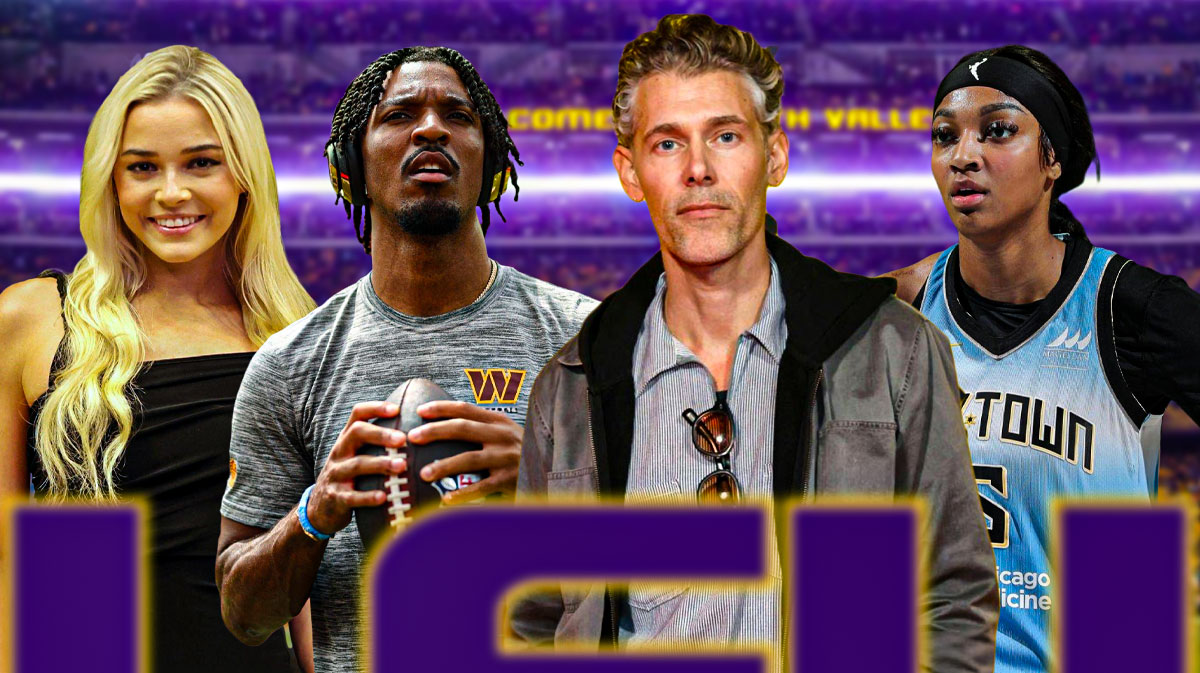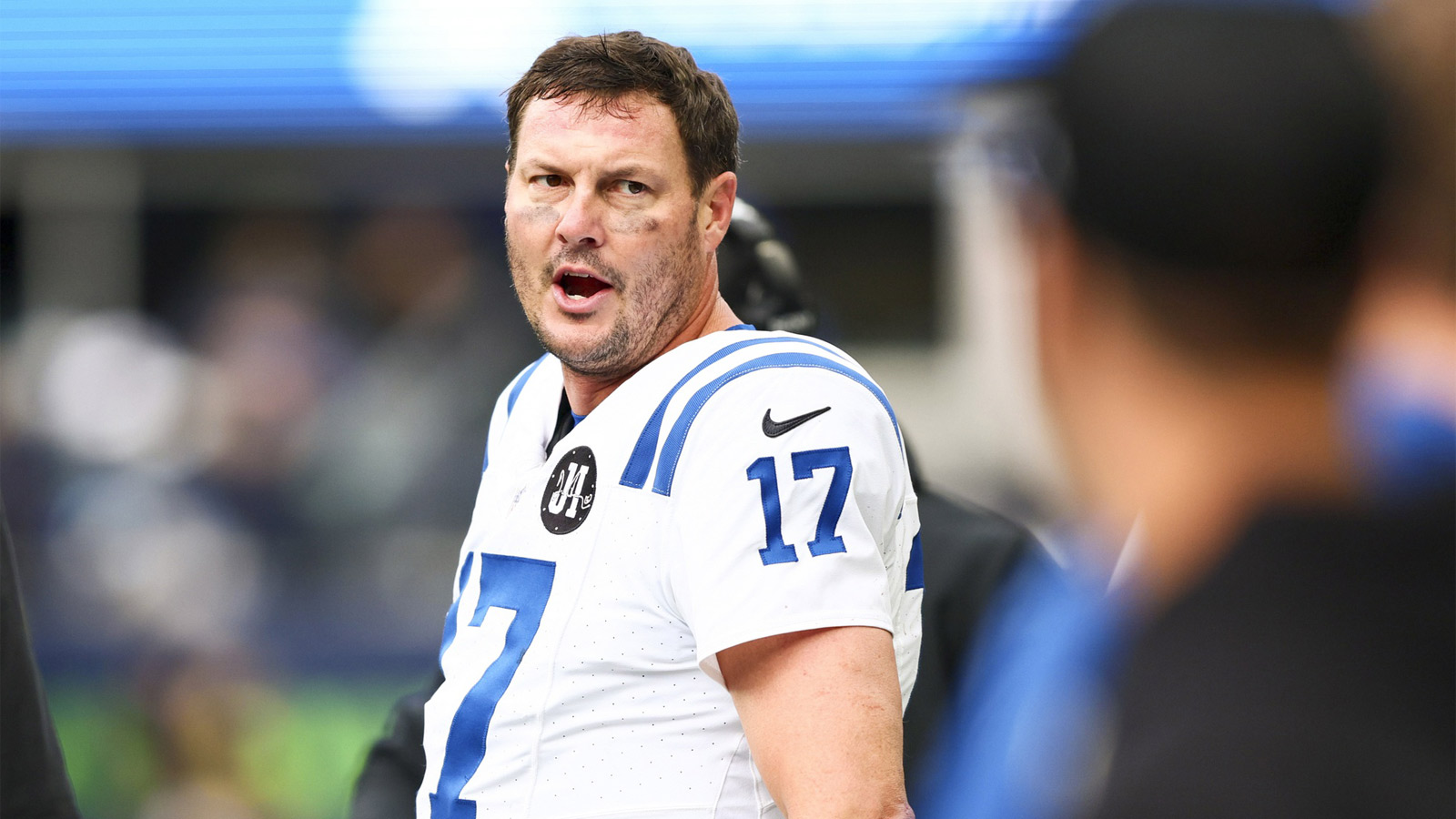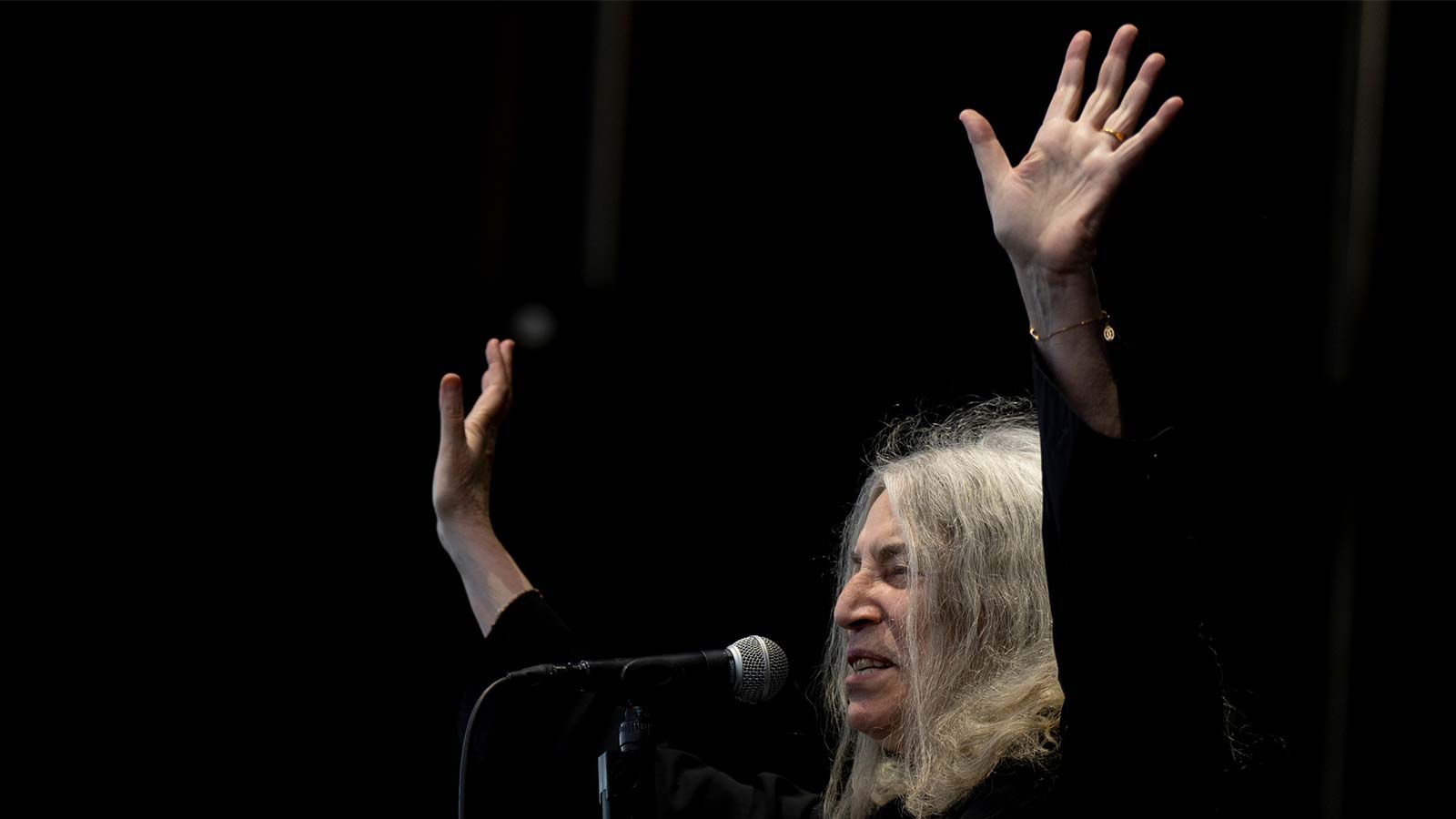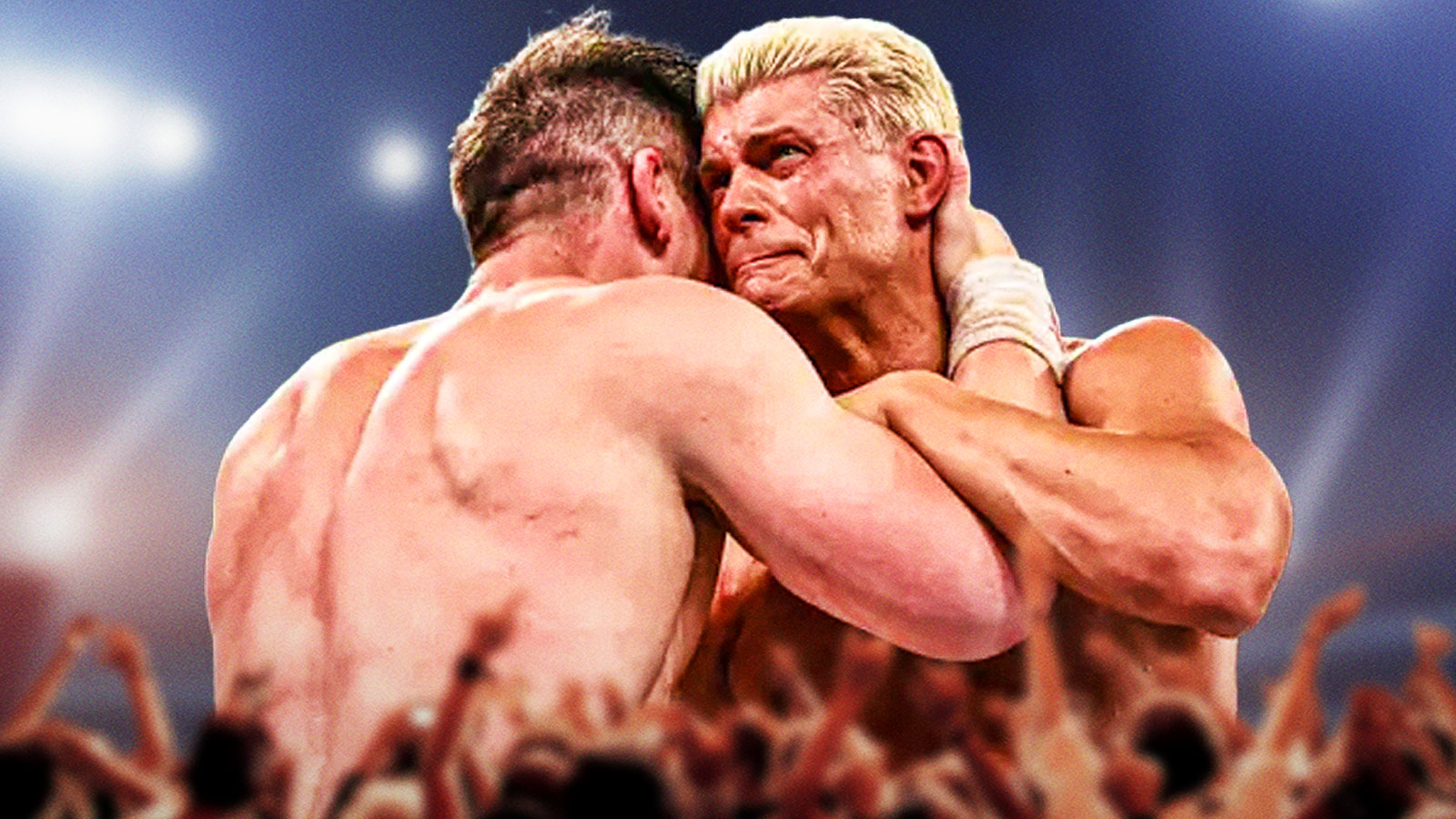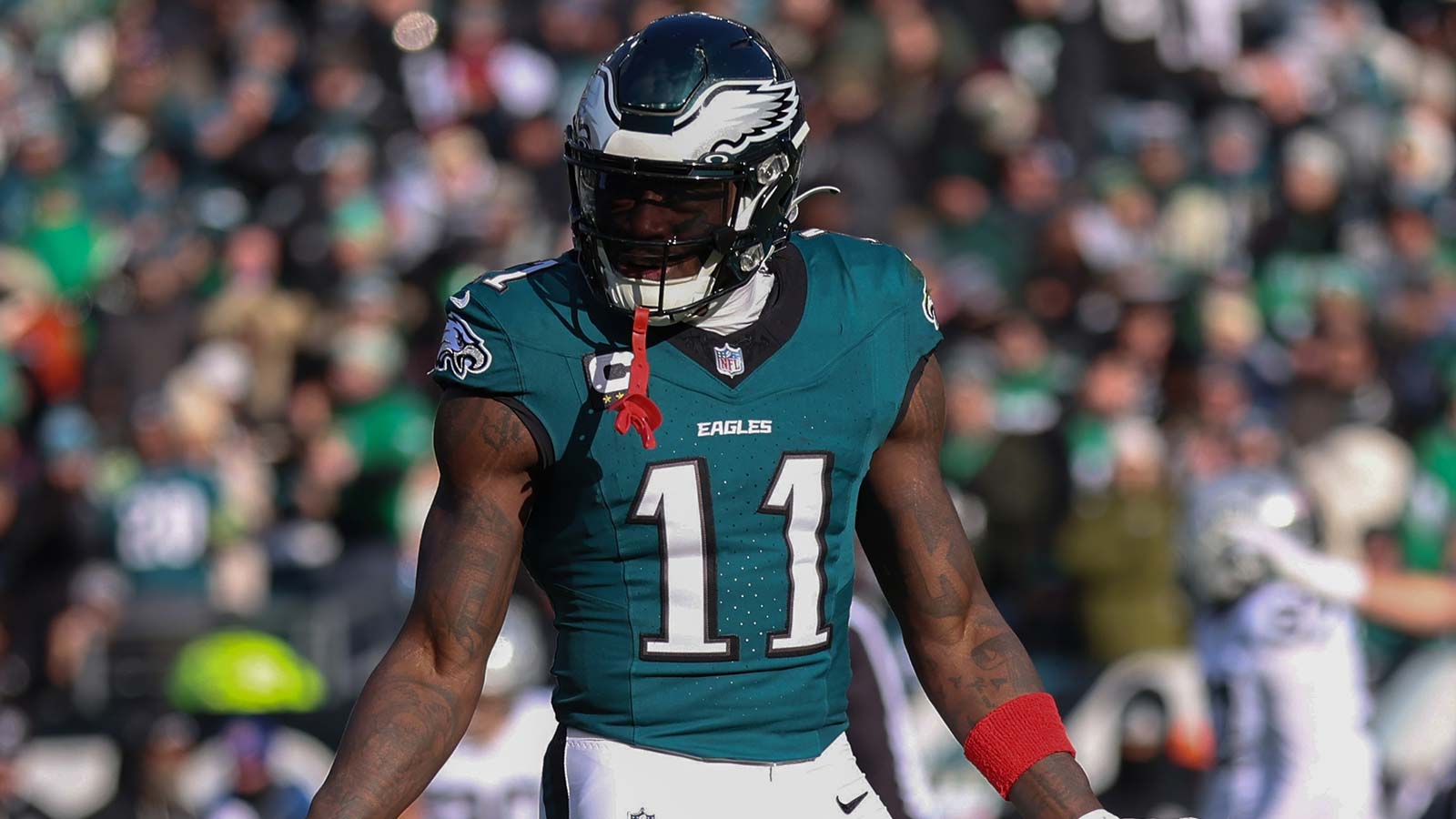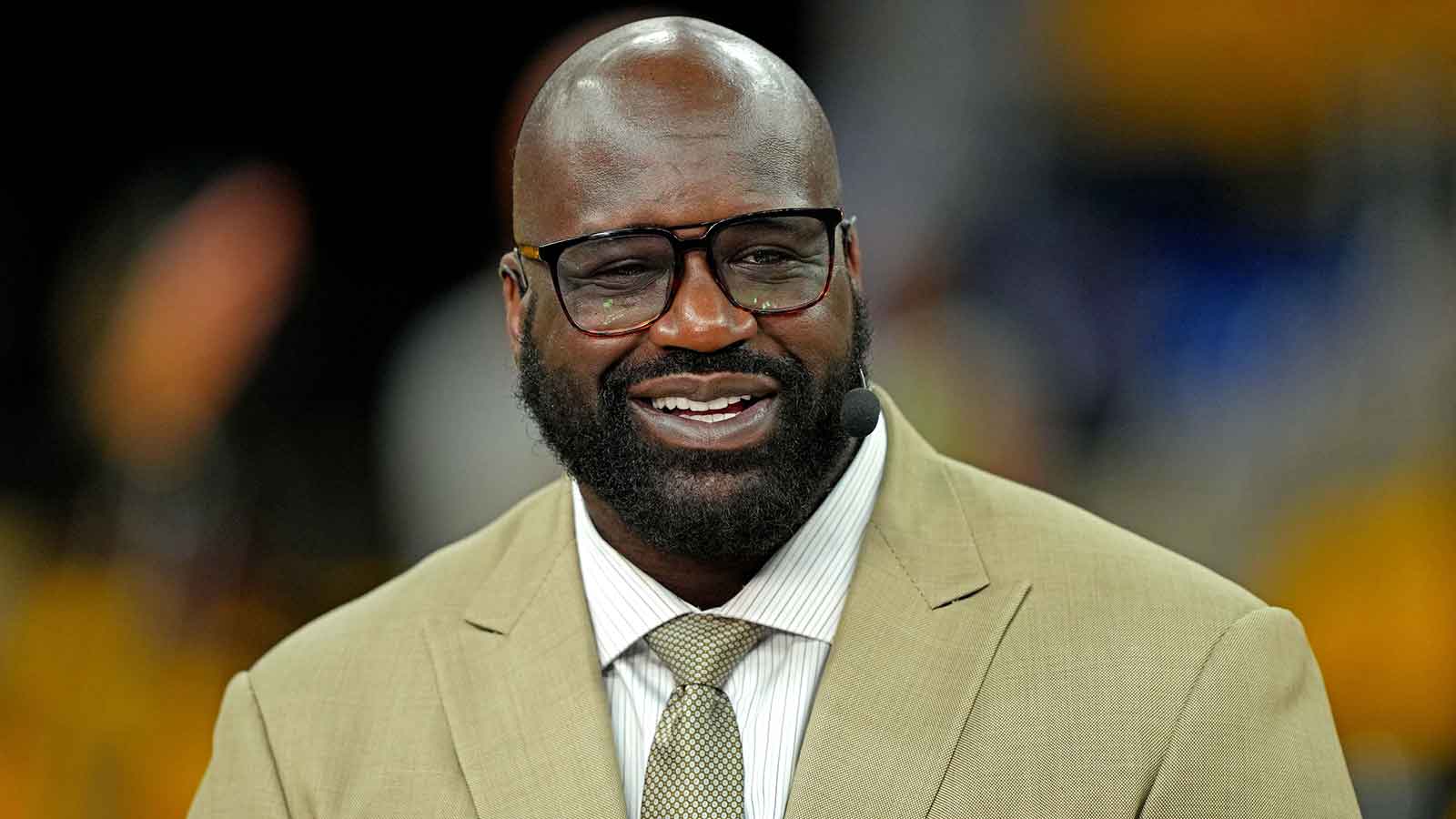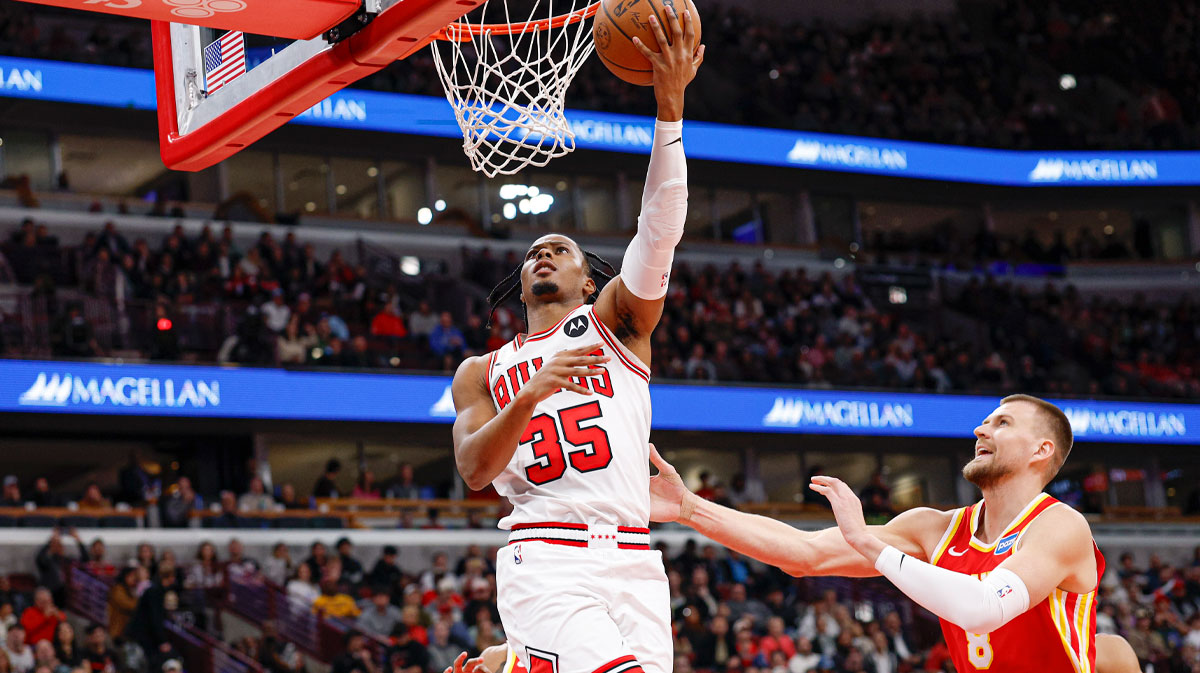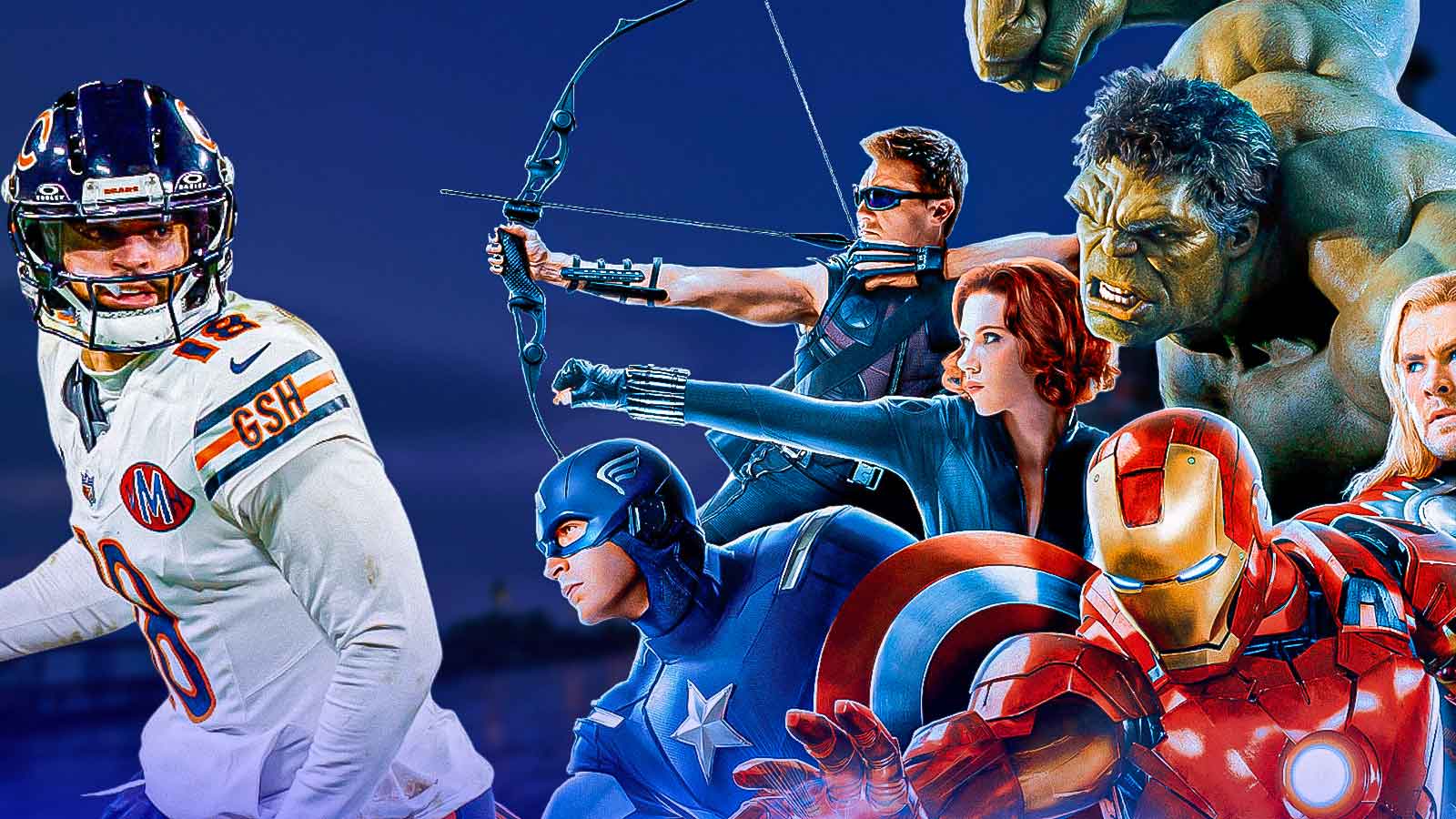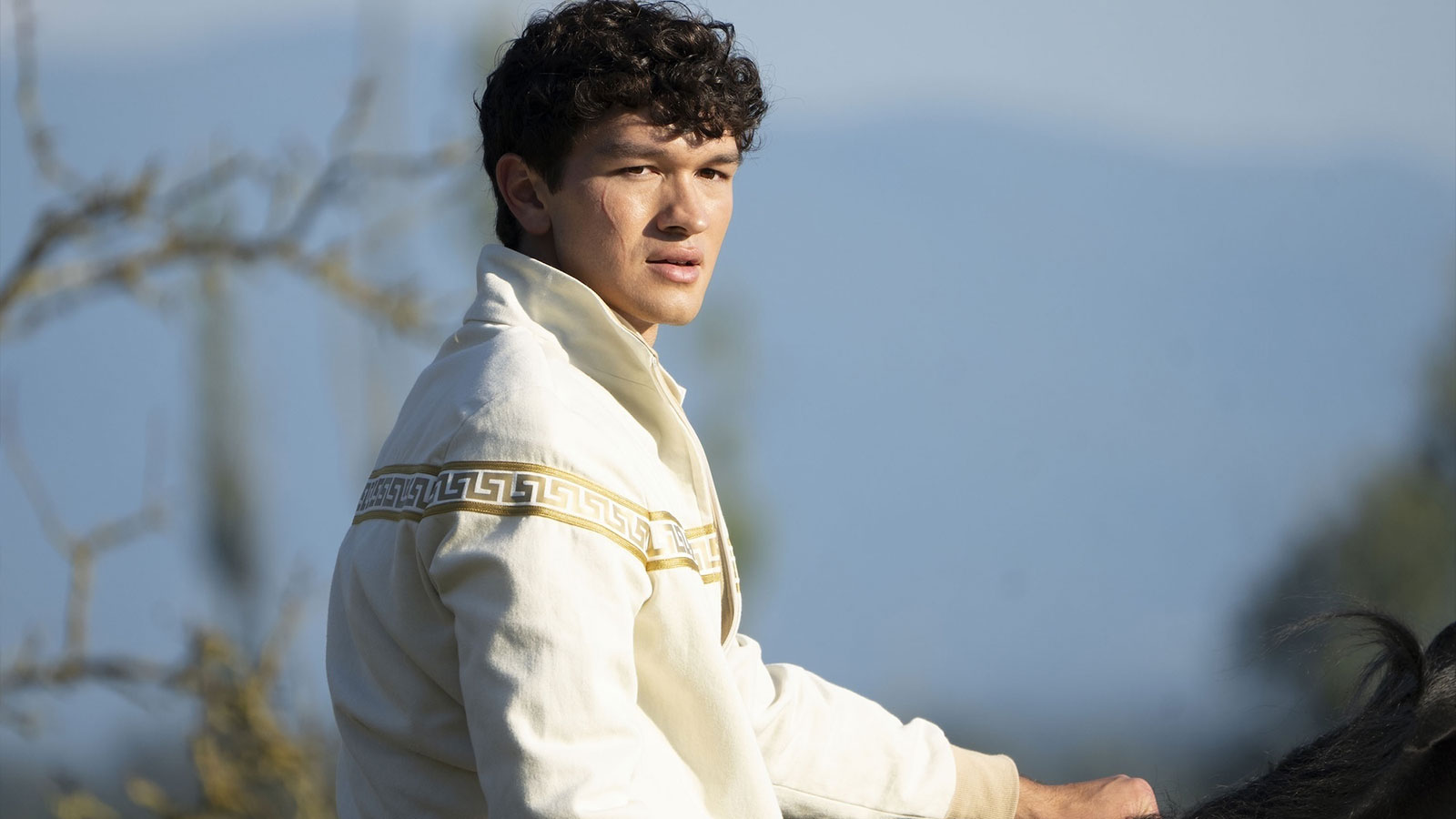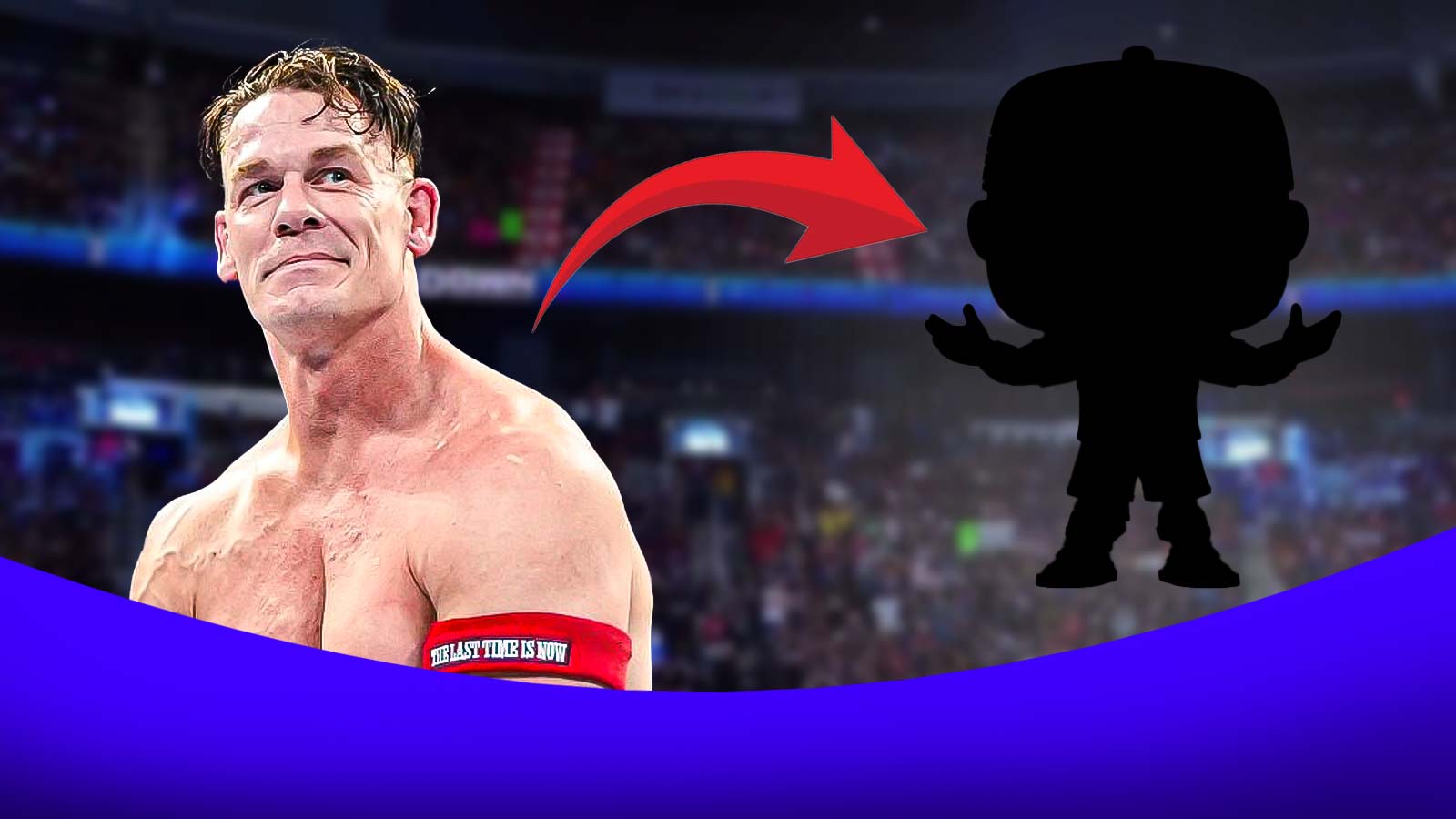Prime Video's The Money Game, directed by Emmy-winning filmmaker Drea Cooper, gives a spotlight to LSU athletes like Angel Reese, Jayden Daniels, and Livvy Dunne, who are embracing NIL.
NIL (name, image, likeness) allows college athletes to make money via sponsorships and brand deals. The topic has been controversial in the sports world, but Cooper hopes to give a glimpse of what goes on behind the scenes.
If nothing else, The Money Game proves it is hard work to be a top athlete. The series gives an intimate look at the athletes' lives.
ClutchPoints spoke with Cooper ahead of The Money Game's release on Prime Video. He discussed some of the challenges of filming the documentary and finding the balance of highlighting big-name athletes like Angel Reese, Jayden Daniels, and Livvy Dunne.
Drea Cooper talks The Money Game
ClutchPoints: What was your knowledge of all the NIL situation before The Money Game?
Drea Cooper: Look, I've been a avid sports fan, I grew up playing sports, so NIL was on my radar, but it was really at an arm's length. I think what was interesting was, at the time, everybody's got their kind of knee jerk reactions to NIL, you know, money in college sports.
On the face of it, I think you go like, Oh, that can only be messy or potentially a bad thing. But what I was really interested in was really seeing how it impacts the players.
‘Cause I think we've talked a lot about how much confusion there is and how there needs to be federal regulation and how collectives are just taking advantage of loopholes and [how] there's a lot of back room dealings, but I think ultimately what I was really interested in was seeing firsthand day-to-day. How does this new policy really impact the players themselves and the student athletes?
Because for over 100 years, they haven't had a piece of the pie, and they're definitely responsible for putting butts in seats.
Choosing LSU
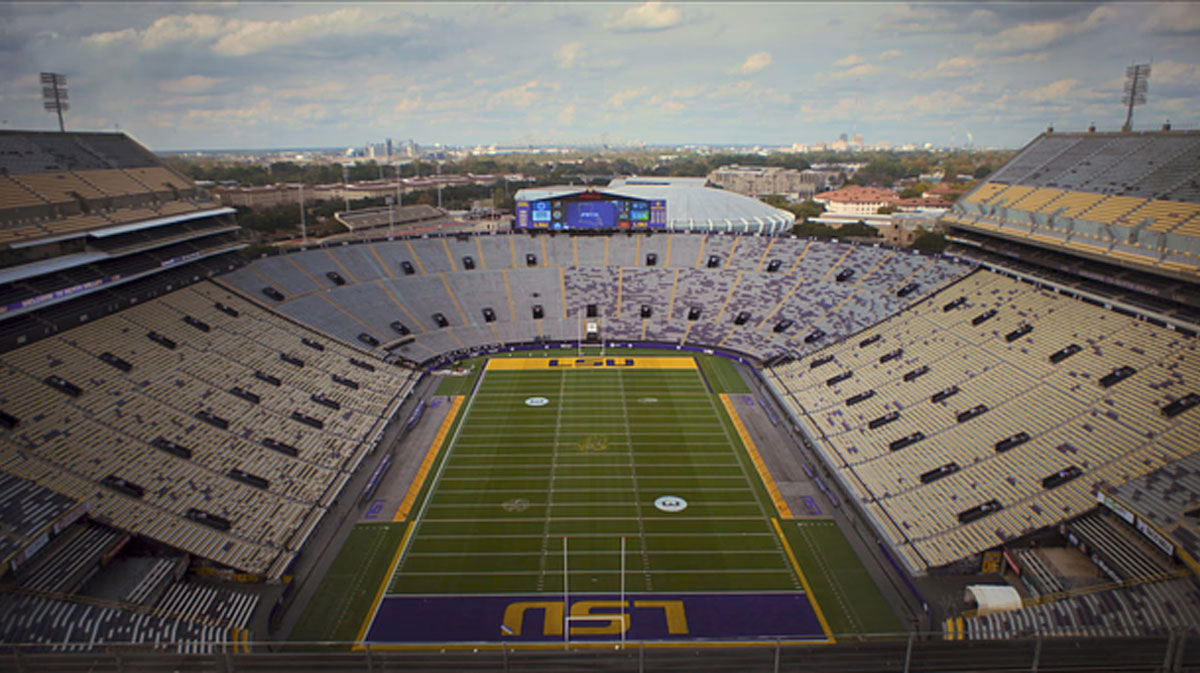
CP: I think of all colleges, you picked a great one with LSU with athletes like Olivia Dunne, Jaden Daniels, and Angel Reese. How did you land on LSU? Were you involved in that process?
DC: When you step back and you look at the different big D1 schools across the country, there's certainly a handful that come to mind. Some of the Texas schools, some of the Florida schools, some of the California schools, frankly.
But I think what was really interesting about LSU was they were one of the first big D1 universities that came out right away and said, “Look, guys. NIL is here to stay, and we're just gonna wrap our arms around this and try to figure this thing out.” And so they actually saw a really unique opportunity in basically partnering with Olivia Dunne right from the beginning.
They put together a big old ad in Times Square featuring Olivia Dunne saying, “Hey, NIL LSU is here. And if you're interested as a student athlete in figuring out how to navigate this new world order of college athletics, come to LSU, because we're going to put some support and some muscle behind this and hopefully get some of the student athletes opportunities to make some money and do some deals.”
Behind-the-scenes of making The Money Game
CP: When making documentaries like The Money Game, there is a lot of stuff that you see and stuff that you don't see. How do you find that balance of documenting their lives and not invading on privacy?
DC: I think that's what makes the series really unique and really fascinating. A lot of times, we're only seeing these athletes from one point of view — they're essentially filtered through the media. You catch little quick clips of interviews, whether they're on ESPN, or some other main sort of sports show or series.
But in a documentary series, this is where we really get to see how the sausage is made. And so I think that scene that you called out with Olivia and her sister, Jules, in their apartment, is an incredible moment. Olivia is running a multi-million dollar business now, and her and her sister are running it from her sister's little one bedroom apartment in Baton Rouge.
And so it just puts things into perspective, to see what goes into this. And in some ways, it demystifies it, right? I think on social media, folks have this unrealistic impression that Olivia Dunn's life is all glitz and glamour and it's easy.
She has fun, sure. She travels, she does really exciting things, [but] there's a lot of work that goes into it. Each one of these posts is curated, all the deals she's doing. I mean, it is a full-time job. And then add to that, she's a full-time athlete, [and] she's a full-time student.
So to really see the impact of NIL on these student athletes' lives was was the ultimate goal of the series. And yeah, it is a tricky balance for these student athletes to manage all this.
The limitations of documenting these LSU athletes' lives
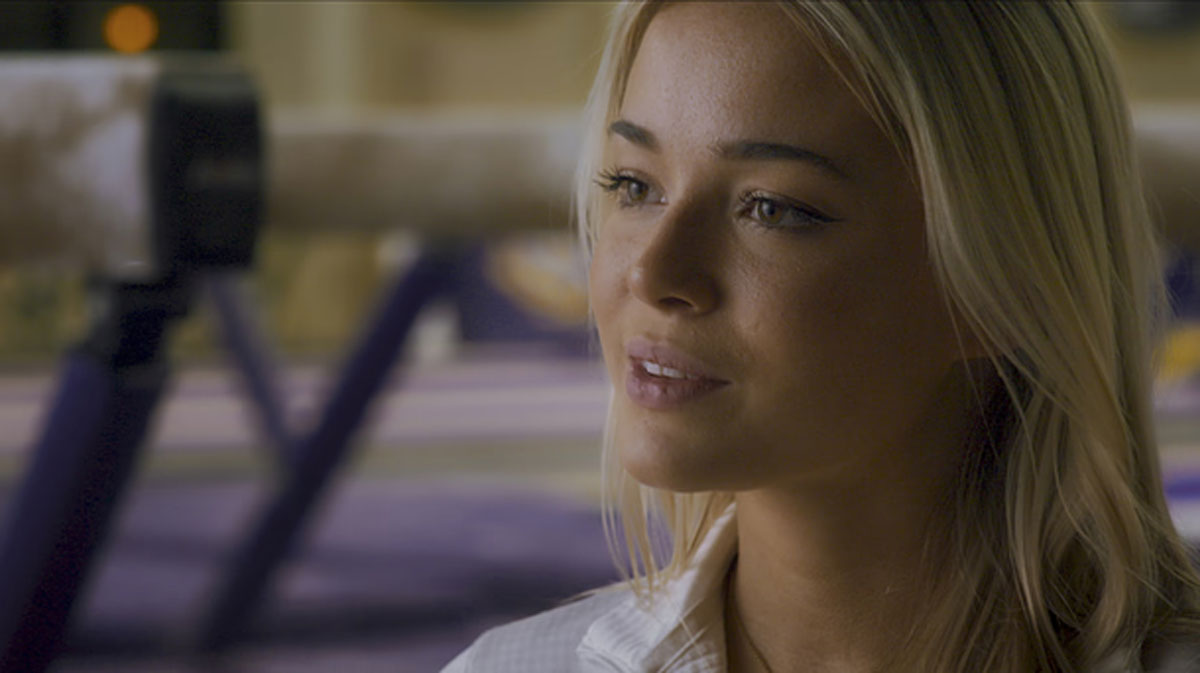
CP: Were there limitations as to what you could show with the athletes' day-to-day? Of course, they are going to be secretive with game plans and such, so how did you balance that?
DC: Yeah, absolutely. I mean, back to your earlier question about the production approach, I've made a feature-length documentaries about young boxer from Flint, Michigan, who went to the Olympics and navigating the Olympics and the IOC was really tricky and complicated.
That's a massive institution that has a lot of rules. I did an eight-part series in Flint, Michigan, about the Flint police and embedding with police, which is real tricky and complicated.
But I will say, hands-down, this series was the hardest thing that I've ever made. And a lot of that has to do with navigating each individual athletes' world, right? So we have an ensemble cast of characters in the show, we're following six different student athletes, some are the big names—Olivia Dunne, Angel Reese, Jayden Daniels—and then we have a couple of underdogs, so to speak, or your typical college athlete.
Like Alia Armstrong, who's a track athlete, or Trace Young, who plays on the men's basketball team. And so each one of them have their own character. own worlds and spheres. They play on their own team. Each team has a coach and their whole team. So you have to navigate each one of these.
Making six documentaries
It was like doing six films in one, essentially. There were times when they were like, “Look, we're not sure the cameras can make it in here,” and we're like, “Okay.”
But there are other times where it's like, “D**n, this is incredible that we get this access that we get to actually see what these guys are going through.”
And sometimes that was them working on their content at home, and you're just like, “It doesn't look that glamorous.” Or rolling with Jayden at 5:30 in the morning because he likes to get up early and go watch tape. And I was like, “Wait, what time are you getting up tomorrow?”
He said, “Oh, 5:30. I've been doing it all season 'cause it's been working.” And I'm thinking to myself, Oh man, I gotta get up. But hey, that's what he does. That's his schedule. That's his regimen. And that's the work he puts in and you see the results.
Balancing showcasing Angel Reese, Livvy Dunne, and Jayden Daniels
CP: How do you balance having six athletes, including big LSU names like Livvy Dunne and Jayden Daniels?
DC: Yeah, I mean, it really is the biggest challenge of the story, weaving that narrative across the six different athletes. And so on the filming side, it's a constant juggling act.
We were at LSU for the 23-24 school year, and so we pick up with Jayden in the fall, so football is well underway, and then right behind that comes women's basketball, right behind that comes gymnastics and men's basketball, and then track kicks off after Christmas.
So, to be honest, we just had all these balls in the air at the same time, and we were just constantly trying to figure out what is the most important event or game or situation for our different student athletes, and we had to just make some tough decisions sometimes because we can't be everywhere at once.
You got to go with instinct a lot. Games are a little more obvious, but when it came to certain off-court stuff, you got to figure out how to navigate that.
And look, these student athletes are busy, man. They are busy and their schedules are changing all the time. So it was a lot of chasing our own shadow, let's just say that.
“Sports are inherently dramatic”
CP: Luckily, this isn't the kind of series where there is a lot of drama, per se, but did you ever feel the need to fabricate anything or make a scene? I know with some documentaries or reality TV, there's a lot of staging stuff.
DC: No, look, I mean, you know, I'm a big proponent of the “fly on the wall,” vérité documentary approach to nonfiction storytelling. It's a critical ethos for me, essentially observing people in their lives.
And so we're fortunate in that these athletes are living exciting lives. There's no lack of excitement and in many cases, no lack of drama. I mean, sports are inherently dramatic, which is one of the main reasons why we all love sports so much.
And it's so exciting to watch because there's always something at stake. Sometimes those are personal stakes, sometimes those are team stakes, and in the case of Angel Reese, for example, what's personal and what's on the court become something bigger in terms of her running with Caitlin Clark and how the media responded to that and the effect that that had on her as a person and as a player.
Each athlete has their sports story and they have their NIL story. And so we were constantly following both of those tracks for each student athlete that we followed. I think what's really interesting about the series is that you see each person across those six student athletes, they've all got a different story to tell with respect to their sport and NIL.
Moving on up to the NFL
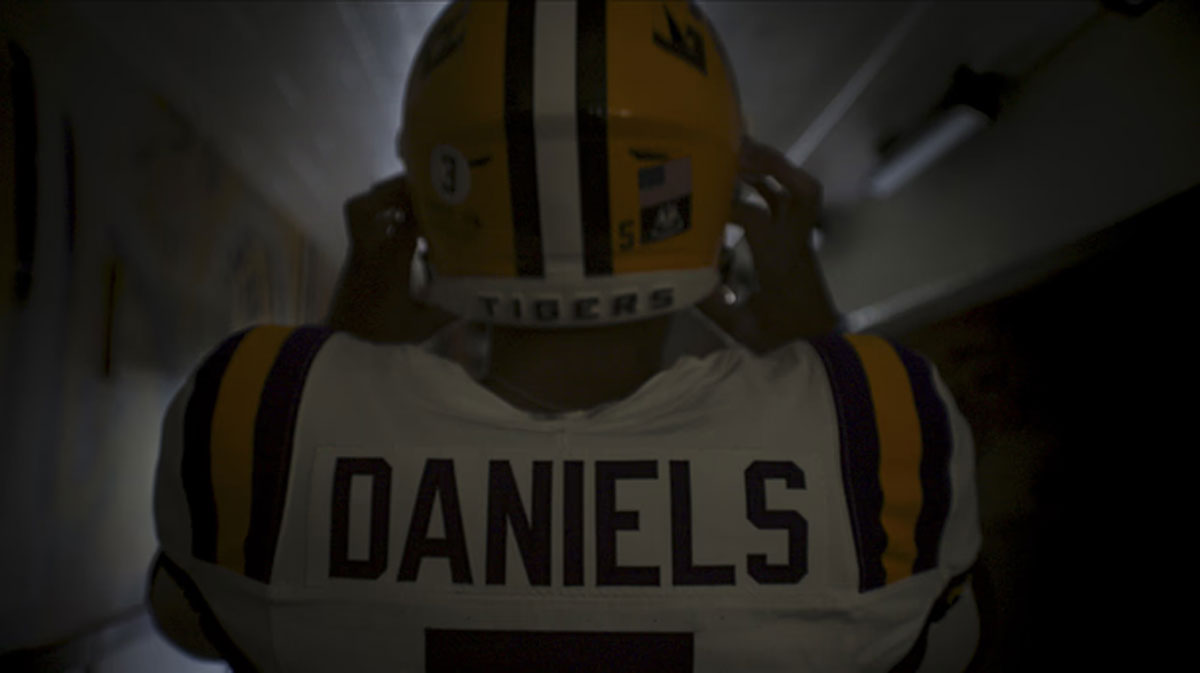
And so you've got stories like Jayden Daniels, who's got his eyes on the big prize. So, NIL, sure, he dabbled in it, but it was in the back seat because he was focused on trying to land this huge NFL contract.
Meanwhile, you've got Trace Young on the other end of the spectrum, who's a men's basketball player who maybe played two, three, four minutes the entire season. But he's doing great at NIL because he's super savvy at social media and has figured out how to make the most of this limited opportunity that he has while he's in school.
And so you really see how people are taking advantage of NIL in totally different and unique ways. And I think that's what is really interesting about the series itself.
Angel Reese, Livvy Dunne, and Jayden Daniels tidbits
CP: Since you spent a full year with these LSU athletes, what's something interesting about each of the athletes?
DC: We'll start with Jayden, just because he's kind of top of mind with the football season kicking off. I think one of the central questions that I was interested in that doesn't have a simple answer is this idea that Once money enters into college sports, once amateurism is no longer a thing, is money going to ruin the game?
And I think for a lot of us, you see how money obviously complicates things. That's a big question. And so what I really wanted to figure out was can the love of the game and the money game, can those things coexist? And so with with Jaden, you absolutely see it.
He's got this love for the game, he's got a real joy. He's just he's happiest on the field. And he was able to take advantage of NIL, but he also landed a massive NFL contract.
LSU gymnast Livvy Dunne setting herself up for a long career
And then you've got someone like Olivia Dunne, whose window of opportunity is short. As a gymnast, there's no professional gymnastics league. You essentially go to the Olympics if you're good enough, or you do college gymnastics. But after that, what are you going to do?
And so she has this window while she's in school to make money with NIL specifically, so she's hitting it as hard as she can. I think with her, you really see like, Wow, she's committed to this. It's going to create a whole new career path for her. What she does after college, I think is kind of the big question for Olivia Dunne.
She's in a good position with this sort of college lifestyle brand that she has created. But for her, questions loom about how she'll be able to kind of parlay that into a future career as a spokesperson or model, that kind of thing.
From LSU to the Chicago Sky

With Angel, I think what you see is a young woman who is a beast on the court and is so fun to watch and has really helped grow the game of women's basketball. I really think you see that with the LSU women's basketball team headed up by coach Kim Mulkey, who's a real force of nature herself.
Flau'jae Johnson, you really get to see the excitement and the fervor that has come with that team. And look, they won a championship in '23, and we picked up our story right after the summer where it was like, Oh, man, you're at the top of the mountain. Can you repeat? And how does all that success play into your NIL world?
And what you see is it's a lot to manage and it takes a toll. I mean, it really does take a toll. And so that was a really fascinating to see.
Why The Money Game director likes making documentaries
CP: What's another topic, sports or not, that interests you to make a documentary of in the future?
DC: Oh, I mean, that's one of those big blue sky questions, Andrew. [smiles] Look, I'm really interested in process. I'm really interested in craft and how people, in some cases, devote their lives to such specific work.
In the case of The Money Game, you've got these young athletes who are aspiring, in some cases to become professionals. In other cases, they're just trying to hustle and figure out this NIL landscape. And so I'm always drawn to stories where folks are in it.
For me, it kind of runs the gamut. I'm interested in everything from sports to animals to other sort of social movements, you name it. It just comes down to pursuit of passion and making the personal—in some cases, political—have wider relevance to the way we look at ourselves and the way that we orient ourselves in the world.
The Money Game is streaming on Prime Video.

